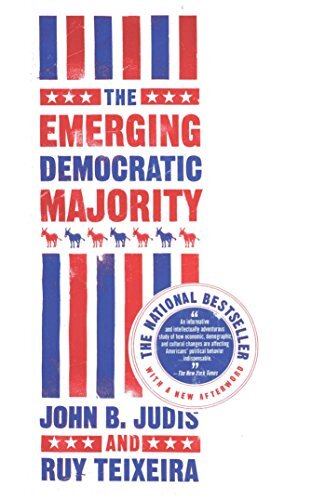The Long View 2008-02-06: Ash Wednesday

Something I hadn’t remembered about John J. Reilly’s musings on politics was that he saw in the policies of the George W. Bush administration a failed attempt to move the Republican Party in a populist direction. Much of the received wisdom of political commentators in the intervening decade was that something like this couldn’t possibly work, for demographic reasons and others, until it did.
Ash Wednesday
On January 1 of this very year, I made bold to predict:
Barring assassinations or divine intervention, Mitt Romney will be elected president in 2008.
And we see on this Wednesday after Super Tuesday that this prophecy has been wonderfully fulfilled through the work of the Lord's servant, Mike Huckabee. His victories in the south, and his strong third-place showings elsewhere in yesterday's Republican primaries, did nothing to change the fact that it is no more likely that pigs will fly than that he will get the Republican nomination. Here's an illustration:

However, his good showing means that Mitt Romney will no longer be able to present himself as the alternative to McCain. It appears likely that McCain will get the nomination with only a plurality of the votes cast by the sort of people who vote in Republican primaries. That, however, as we will consider below, may be a predicate for winning the general election.
I voted for McCain yesterday, by the way, in an almost wholly Democratic district. I caused some surprise, if not consternation, when I asked the poll worker to set the electronic booth for the Republican primary. I was asked to sign a special form; for afterwards; I suppose.
* * *
The normally effervescent Mark Steyn sounds more and more like Whittaker Chambers on a particularly bad day, when Chambers could feel the Muscovite tentacles closing in:
The real story of the night, when you look at their rallies and their turn-out numbers, is that the Dems have two strong candidates either of whom could lead a united party to victory. Forget the gaseous platitudes: in Dem terms, their choice on Super Duper Tuesday was deciding which candidate was Super Duper and which was merely Super. Over on the GOP side, it was a choice between Weak & Divisive or Weaker & Unacceptable. Doesn't bode well for November.
Steyn further directs our attention to Zorro, who had said at the end of January:
First, demography is poised to destroy conservatism in a devastating triple threat. The baby boomers will start retiring, and will probably shift a little to the left in the process. Second, Mexican immigrants will most likely end up being pretty leftist. Finally, years of liberals running their own private indoctrination camps through the American education system have finally taken their toll and are churning out reliably liberal kids who will inevitably come of age. Not enough of them are conservatives and not enough of them will be mugged by reality to convert to conservatism. It is ultimately these three factors that threaten to sink conservatism for at least a couple decades.
This sort of thinking is why the Republican Party is sick unto death. Only in the Inner Party could a candidate like McCain be considered weak. The political strategy of talking only to the "base," essentially a plurality of voters concentrated in the south, ensured that the popular vote in all presidential elections would be close. It also ensured that government would be impossible. We have representative government to facilitate negotiation and compromise among interest groups. Government per se requires a high degree of flexibility. This is just what protecting the base makes it impossible to do; the elements of the base have their non-negotiable demands, and they see their implementation, regardless of consequences, to be the only reason for attaining office. The base strategy turns the government into a game of "chicken," in which the contestant in one car throws away his steering wheel and dares the contestant in the car toward which he is speeding to swerve first. One cannot survive many contests like this and, predictably, the post-Reagan Republican Party hasn't.
"Conservatism," understood as economic Libertarianism garnished with sanctified morality sauce, has been tried and found wanting. What happens now is a return to a politics that seeks the center. And what will we find at the center? Something like Christian Democracy, I think, though the beta version needs work.
The cultural left has survived in the United States because its opponents have been held hostage by an alliance to cynical and self-destructive economic interests. The greater surprise awaits the the Democrats when this alliance is well and truly broken.
* * *
Meanwhile, we learn that language evolves in sudden leaps, according to a statistical study of three major language groups...
Mark Pagel from the University of Reading in the UK and colleagues applied statistical tools commonly used in biology to the analysis of three of the world’s major language groups: Indo-European, Austronesian, and Bantu.
[T]hey found that up to a third of all vocabulary changes result from "punctuational bursts of change" when one language splits from another.
In 2005, Pagel performed a similar analysis of genetic variation in species of trees. He found that 22% of evolutionary change came during similar periods of rapid development in some species.
"Punctuated equilibrium": S.J. Gould was not a complete idiot. And yes, the concept is relevant to current events.
Copyright © 2008 by John J. Reilly



Comments ()